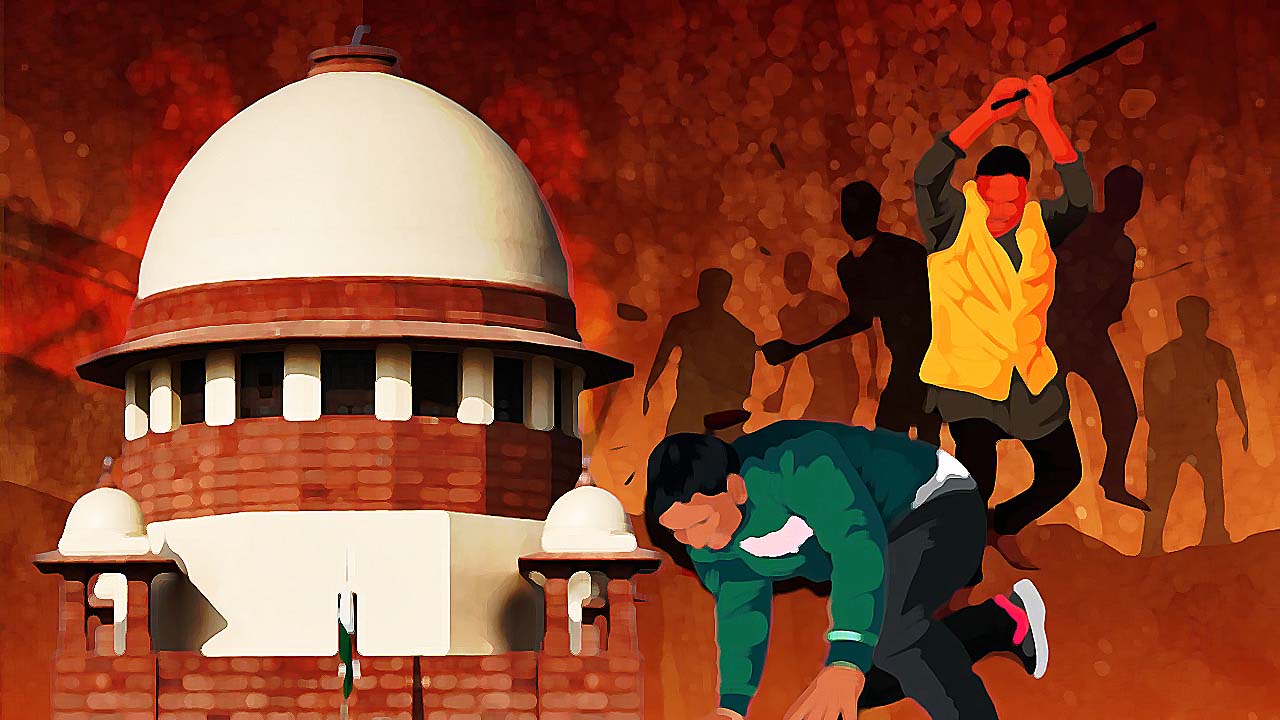On February 11, the Supreme Court of India disposed of a Public Interest Litigation (PIL) filed by the National Federation of Indian Women (NFIW). The PIL highlighted the increasing incidents of mob lynching and violence, particularly by cow vigilante groups, and sought strict implementation of the guidelines laid down in the 2018 case Tehseen S. Poonawalla v. Union of India. The petition raised concerns over the lack of enforcement of preventive, punitive, and remedial measures mandated by the Court to curb lynching and mob violence.
A bench comprising Justices BR Gavai and K Vinod Chandran ruled that while the Tehseen Poonawalla judgment remains binding on all authorities under Article 141 of the Constitution, it was not feasible for the Supreme Court to micro-monitor compliance across various states and union territories. The Court stated that any aggrieved individuals could seek remedies in accordance with the law by approaching competent courts, including jurisdictional High Courts.
The bench addressed multiple prayers in the petition:
- Enforcement of Tehseen Poonawalla guidelines – The Court reiterated that the 2018 judgment was binding, and in cases of non-compliance, affected persons could take legal recourse.
- Uniform compensation for victims – The Court rejected the request for a fixed minimum compensation for victims of mob lynching, stating that compensation should be determined on a case-by-case basis depending on the nature and severity of injuries.
- Challenge to state enactments empowering private vigilantes – The petition contested the validity of 13 state enactments or notifications that purportedly granted powers to private individuals and organisations to check cattle smuggling and related activities. The Supreme Court directed that such legal challenges should be raised before the respective jurisdictional High Courts.
Legal arguments and state response
During the hearing, Advocate Nizam Pasha, representing NFIW, argued that despite the Supreme Court’s directives, there was rampant non-compliance by state authorities, leading to an unchecked rise in cow vigilantism. He emphasised instances where law enforcement agencies failed to take action against vigilantes, and in some cases, filed FIRs against the victims instead of the perpetrators.
Solicitor General Tushar Mehta, representing the Union government, countered that mob lynching had been officially recognised as a separate offence under the Bharatiya Nyaya Sanhita (BNS), India’s new criminal law framework. He maintained that state governments and law enforcement agencies were responsible for handling individual cases and that filing repeated petitions for compliance was unnecessary.
Previous proceedings and state compliance issues
The PIL had been pending since 2023, during which the Supreme Court had issued a warning to five states—Assam, Chhattisgarh, Telangana, Maharashtra, and Bihar—over their failure to submit counter-affidavits regarding compliance with the Tehseen Poonawalla guidelines. The Court had earlier directed that these states file their responses through their Chief Secretaries, failing which, the officials would be required to appear in person to explain their inaction.
Although the states eventually filed their affidavits, the Supreme Court noted persistent non-compliance and observed that enforcing adherence across different states from Delhi was impractical. The Court reaffirmed that affected parties should seek relief at appropriate legal forums.
Specific cases highlighted in the petition
The PIL cited multiple incidents of mob lynching and violence targeting minorities, particularly Muslims, under the guise of cow protection. Among the cases mentioned were:
- The lynching of a truck driver named Jaharuddin in Bihar’s Saran district on suspicion of transporting beef.
- An attack by members of Bajrang Dal on a Muslim daily wage earner transporting two cows.
- The violent assault and illegal detention of two Muslim men by a mob in Bhubaneswar, Odisha.
- The attack on a bus carrying Hajj pilgrims in Kota, Rajasthan.
The petition alleged that such incidents were fuelled by false propaganda against minorities, spread through social media, news channels, public events, and films. It further argued that the state machinery had failed to take meaningful action against vigilante groups, emboldening them to continue perpetrating violence.
Conclusion
While disposing of the PIL, the Supreme Court underscored that its Tehseen Poonawalla judgment must be followed and that non-compliance could be challenged through legal channels. However, it refused to undertake micro-monitoring of incidents across states, stating that affected parties should seek recourse through appropriate judicial forums. The ruling reaffirms the binding nature of Supreme Court guidelines but leaves enforcement largely in the hands of state authorities and lower courts.
This decision raises concerns about the effectiveness of judicial directives in preventing mob violence and ensuring accountability, particularly in cases where state authorities have failed to act. The debate over cow vigilantism and mob lynching remains a significant human rights issue, with civil society organisations continuing to push for stronger enforcement and accountability mechanisms.
Related:
Cow Vigilantism: The primary cause of persecution of Muslim minority in India

